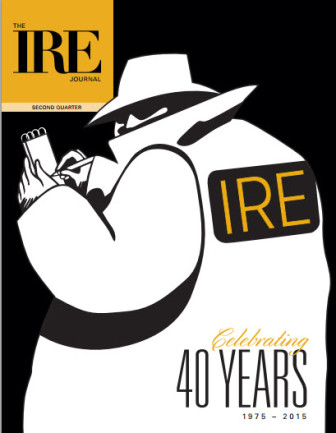A short overview for IRE Journal to celebrate 40 year for the US-based Investigative Reporters and Editors.Together with former IRE director Brant Houston, I organized the first two global conferences and founded the Global Investigative Journalism Network in 2003.
BEFORE 1975Lone journalists and a few news organizations in many cases investigated specific stories, but few media practiced this kind of journalism. There was no education in investigation journalism. The Watergate scandal in the 1970s inspired many young people to want a career as a journalist.
In Europe, only Sweden had a freedom of information (FOI) law from 1766, followed by Finland in 1951, Norway in 1970 and Denmark in 1970. Half of Europe was behind the Iron Curtain with no press freedom.
AROUND 1990
The former socialist countries turned into democratic states and began to establish FOI laws. Slowly, we saw a change in journalistic methods in these countries, adopting some investigative methods rather than writing long explanatory pieces. In the beginning, almost no journalists used the new FOI laws.
In Sweden, Europe’s first association of investigative journalists, Grävände Journalister, is formed in 1989, soon followed by Foreningen for Undersøgende Journalistik (FUJ) in Denmark and Stiftelsen for en Kritisk og Undersøkende Presse (SKUP) in Norway. Their aim is to share methods, often with the help of speakers from foreign countries.
A lot of news media in Scandinavia established investigative teams. We see only a handful of projects in the 1990s where journalists from two countries and different media work together.
AROUND 2000
Western aid moves into former communist countries in Eastern Europe, supporting the founding of investigative journalism nonprofits in Armenia (2001), Romania (2001), Bosnia and Herzegovina (2004) and elsewhere.
The first global investigative journalism conference is held in Copenhagen, Denmark, in 2001, which develops two years later into the Global Investigative Journalism Network, and now serves as a meeting point for investigative journalists worldwide.
Other European countries form associations for investigative journalists, including Finland, Germany, the Netherlands and Switzerland.
Around this time, the region also exploded with FOI laws. Today, 40 European countries have FOI laws, and there are many centers actively using and documenting how they work. In 2013, Spain became the latest European country to adopt an FOI law.
The European Union (EU) also now has a regulation on access to documents and files, but there is only a small amount of investigative journalism covering EU stories.
In 2003, the Denmark-based SCOOP was formed as a network for supporting and conducting investigative journalism in Southeast Europe and Ukraine and now includes many other countries.
In 2005, FarmSubsidy.org was created as the first European network of journalists and activists to share data on EU farm subsidies.
2015
There are a growing number of centers for investigative journalism working across Europe, but it is a challenge for them to find funding. Coordinating cross-border projects is only in its infancy.
The Journalismfund.eu supports some cross-border reporting, while groups like the Washington-based International Consortium of Investigative Journalists (ICIJ), and the Sarajevo-based Organized Crime and Corruption Reporting Project (OCCP) work with various news media on big projects.




No comments yet.